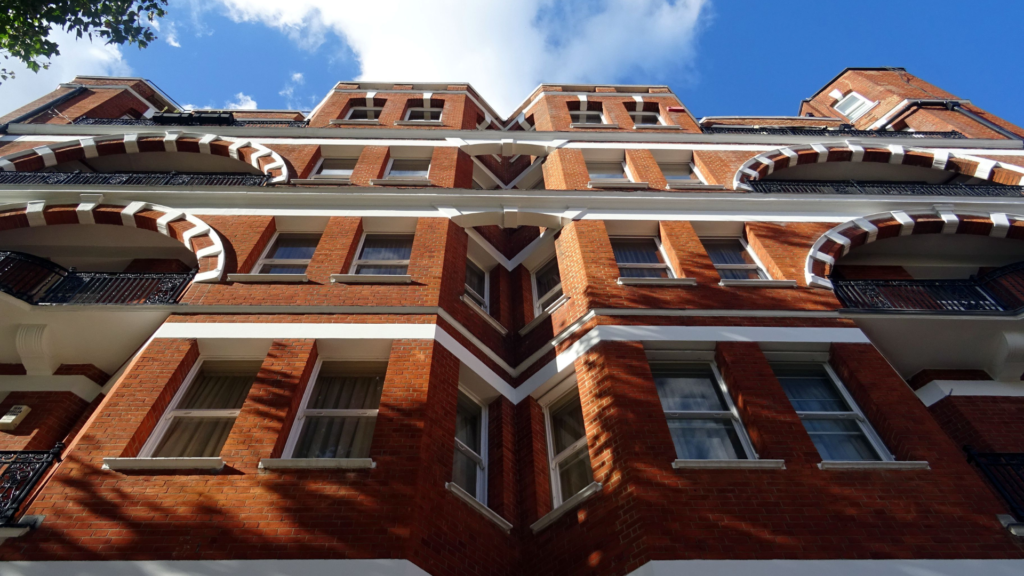
Are you an investor looking to expand your real estate portfolio? Don’t miss this episode of the Investors Playbook podcast, where David Atwell and Mark Gonneau of HoneyTree share their story as seasoned investors in Canada. They describe how he went from leaving the movie business and chiropractic to finding and acquiring their first hotel property in Montreal.
The HoneyTree – Investor’s Playbook showcases the story of HoneyTree, a hospitality business that started in February 2018, and the journey they went through to success. Learn how they shifted gears in March 2020, right before the pandemic hit, and pivoted back to hospitality to take advantage of a huge opportunity with many hoteliers throwing in the towel. Tune into this Investor’s Playbook Podcast and find out how they closed their first deal in Montreal with 27 units right downtown. Don’t miss this incredible story!
Simeon Papailias: Good morning to my Investors Playbook Nation. This is Simeon Papailias. And today I have the pleasure of welcoming Marc Gonneau and David Atwell to the studio where we’re going to be discussing everything they’re up to. They are the founders of Honey Tree Real Estate, and Honey Tree is a fund that is growing. It is a fund that is investing in the hospitality sector. But in a twist, it has a big, big twist to it. These boys were able to identify a hole in the marketplace and it’s everything we’re going to be covering today with them, what they’re doing about it, and how their team and their investors are winning every single day. Stay tuned. Mr. Marc Garneau. David Atwell, welcome to Investors Playbook. I’m very, very happy to see you boys this morning. Good morning.
HoneyTree – Mark Gonneau: Good morning. Morning. Thank you for having us. Yeah, thank you very much.
Simeon Papailias: It is definitely our pleasure to have you. I’m very, very curious myself, although I know kind of the high level of what you’re up to. I’m very curious to find out the details. And that’s why the team invited you on the show. We are looking to enable and of course, further the investment community by presenting options and educating everyone on how creativity. Implies opportunity. In this business of real estate, investing in this business of investing, there is legit a trillion ways to skin the cat. Everybody has an idea. Everybody has a method. Not all of them work, but some of them are more intriguing than others. And what what really got me is the fact that. True, entrepreneurs are never scared of chaos. They actually thrive in chaos. And we just went through a three year period. I’m not going to say the word. It’s never happened before. We are in uncharted waters. All the things the pandemic. The pandemic really messed people up. The pandemic. Really disrupted. The status quo. Traditional investing, traditional living. It changed the way we do things. It changed the world.
HoneyTree – Mark Gonneau: Yes, 100%.
Simeon Papailias: Inside the pandemic. You specifically, you two saw an opportunity developing your avid real estate investors already. So I want to kind of get started with a little bit of your story, how you came to to to seize an opportunity in the pandemic. We’ll speak to the opportunity in great detail. But tell me a little bit about your story of investing, what you’ve done traditionally, let’s call it the last five years. So two years prior to the pandemic, where were you? What were you doing? What was your mindset versus where you are today? Mark, get started. Sure.
HoneyTree – Mark Gonneau: I mean, my real estate investing story is, you know, goes back. Closing in on 25 years. So I’ve been doing this for a while and I’ve done a lot of stuff. Five years ago, I was very much in the multifamily world. We were doing a lot of multifamily value add, buying apartment buildings, and as units turned over, we’d renovate them, put in new tenants, paying a higher rent to drive the value of the building. And that is it’s a great model, but it’s still a great.
Simeon Papailias: Model today, by the way.
HoneyTree – Mark Gonneau: Yeah, 100%. It’s still a great model today. And it’s just we started looking at the valuations in multifamily buildings and seeing that it was making less and less sense with the cap rates being compressed as much as they were interest rates looking to go up, which of course they they have in 2022 quite substantially. It it wasn’t making as much sense as it was before. And and then we saw this this fantastic opportunity with the hospitality. And I’m going to let Dave jump in here because the hospitality just represented something that was going was was going the other way from a cap rate standpoint and it was a great opportunity.
Simeon Papailias: So let me say this before David jumps in, what we’re referring to with hospitality is we’re not talking about cheeseburgers. No, we’re talking about the hotel industry. Yes. And we’re in the hotel industry. What it is, it’s to to the real estate investor. Let’s. Before Airbnb made every single person a hotelier overnight. Because that’s what it did. Yeah. And there’s people who really took advantage of the opportunity they became. Even peddlers of other people’s Airbnbs and all the different craziness that ensued. Hoteling. If you’re going to go hotel is your retailing housing. You’re allowing a human being who’s on the go to put their head at a pillow overnight and you charge them money for it. Yeah, the actual definition of hoteling and all the amenities that go with it from one star to five star, from swimming pools to tennis courts, whatever your lifestyle chooses. The difference here. Is the pandemic changed people? 100% and it created an opportunity. So where we’re going with it for everybody to just kind of follow the breadcrumbs because you went from multifamily to recognize the retailing of real estate. Multifamily is long term rental. Stands to be the absolute best asset class in real estate, which is why every pension fund and institutional investor is after it. Which is, to your point, a second ago, what drove cap rates all the way down? Yes. Multifamily is so stable. That people will pay and receive a three cap just to be in it, just to park money. That’s not what a real estate and active real estate investor is looking for. They’re looking for cash flow. They’re looking to supplement their incomes and they’re looking to grow. Yes. David, before we dive into where we’re headed, give me your background of what you were investing in. What what excites you about the real estate investment industry?
HoneyTree – David Atwell: Yeah. So I started when I was 24. You know, I that was back in 2011. I was saving up as much money as I can because I just really wanted to get into the market. I really wanted to get a house. And so I bought my first student rental in 2011. And shortly after, you know, I was working in the movie business and some of my colleagues started noticing the success that I had, and they were asking me to invest money with me. And that was initially how Honey Tree started. It’s like, you know, let’s put some money together and buy some property. So from 2011 to 2017, you know, I was in student residence, single family homes, and then getting into multifamily, the multifamily value add space. And truthfully, a lot of that was was kicked off by Keith Spier taking some of those great Keith Spier courses, learning about multifamily, multifamily value add and getting into that, shifting gears to get into commercial.
Simeon Papailias: And for anybody who doesn’t know because you mentioned it in such a way where it’s a natural thing to know about, it’s not. Qui Spire is probably one of the greatest real estate investor communities in this country. It is led by Scott Mcgilvery and Michael Seracini, and they’ve been around for going on well, well over ten years at this point. We’ve been with them since they were real estate wealth. I can’t remember even the name. I think it was the Wealth Academy. The Wealth Academy? Yeah. And we’ve grown with them and been with them for the entire time as educators and facilitators of opportunity for anybody who doesn’t know what qui Spire is, definitely get onto Google or or your search engine and find out about it because it is going to teach you things that you wouldn’t otherwise know. Going back to those teachings, what did you implement immediately upon learning the intricacies of real estate?
HoneyTree – David Atwell: So that would be private equity. So creating a syndication or a corporation to bring private capital together to buy multifamily, that was probably one of the most important things that I learned was actually how to leverage a property properly and safely and taking that equity out effectively. It’s just the Burr strategy. Implementing that very quickly was probably the most valuable thing from from Spire. Amazing to shift gears there.
Simeon Papailias: Amazing. So let’s get into what you identified. So you’re sitting there looking at the market? Yeah. My understanding is you guys were just looking at multifamily and you run into some motels.
HoneyTree – David Atwell: Not quite, actually. Yeah. So in 2017, you know, the market was on fire. That was in February 2017. Mark and I sold one of my single family homes in Barrie, and at the time I think there was only like 6 or 7 listings. And as soon as we got the accepted offer, that’s when the Fed introduced the stress test and then interest rates started going up and value started coming down.
Simeon Papailias: April 2017 I was in the middle of two. So February was on fire. Yeah. April of 2017 is a whole different story. Yeah. Which is when the fair the fair housing plan came into to effect with Kathleen Wynne. Yeah. And I was the middle of two $4 million builds and in Etobicoke in Humber Valley. And anyways I sold them and we did extremely well. Yeah, extremely well Yeah. The poor buyers literally went into a cardiac arrest because in June the market took a 15% hit. Yeah. But by January it was back above 10%. Above where it was. Yeah, exactly. So all ends well. But I remember that time like it was yesterday. Yeah, exactly. It actually put a mark on, on my career.
HoneyTree – David Atwell: Same with us. And so, you know, at that point, you know, I was sitting on some cash. I just freed up some of my single family homes. I’m shifting gears in a commercial and I’m looking at cap rates in Toronto and southern Ontario. I’m like this, This won’t do. Like it was driving me crazy. And so one market I started looking at was multifamily. In Quebec, in Montreal specifically, I’m looking at all the purpose built inventory, the cap rates, like it’s such a great environment. And so I decided, you know what, I’m just going to fly out there for a weekend. I’m going to meet with some realtors, We’re going to go look at some product. We’re going to look at some inventory just to get to know the market. Right. And while I was there, it was the morning I was checking out, I was like, you know what? The most interesting thing about this trip is the hotel itself that I stayed in because I booked that on Expedia. I had about 200 different choices and I chose this one. It looked the best. It was in the best location and had the best price. And while I was sitting there, it dawned on me like, how did they pull that off? And it’s because they use a digital concierge. There’s nobody there to check in. It’s basically an Airbnb multifamily building. And that’s when I had that aha moment. It just clicked in my head. I’m like, this, this is what we should be doing. That was February 2018 at the time, so we’re just a little over five years ago now.
Simeon Papailias: Wow. In two years prior to the pandemic.
HoneyTree – David Atwell: Two years prior to the pandemic. And this actually Segways great as part of the story because I came on and I started talking to Mark, I’m like, Mark, we got to do this. Like, this is the next best thing. And, you know, we started doing our research.
Simeon Papailias: Because you’re collecting a couple hundred bucks a night. That’s retail money. Yeah, 200 bucks a night translates to six grand for a room.
HoneyTree – David Atwell: Exactly. For a bachelor? Yeah. Come on. For 180 square foot. 240 square foot room. Right.
Simeon Papailias: Gorgeous. Yes.
HoneyTree – David Atwell: And so that’s when we started looking. And we spent the next two years from from February 2018 to February 2020 looking for deals. And they did not exist. Like we were so frustrated, like they’re great assets. People do not sell hotels. You hold on to them for life because they create so much cash. And in fact, we were about to give up. We’re like, we spent two years like, let’s just shift gears and pivot to the next thing. And we were going down to the states to buy multifamily. We’re like, All right, let’s do Texas, let’s do Phoenix, let’s do Atlanta. You know, let’s just try something else. And then boom, the pandemic and suddenly my phone is blowing up. I have realtors calling me like, Hey, we have this hotel.
Simeon Papailias: So let’s be very clear. What is the pandemic do to the hotel industry?
HoneyTree – Mark Gonneau: So so you.
Simeon Papailias: Go from nobody selling a hotel to the government saying, hey, your passports, you can put those away because you’re not going anywhere. Yeah, right. B, you’re not leaving your house. Yeah, you’re not going to Ottawa. You’re not going to Red Deer, you’re not going to Vancouver, you’re not going anywhere, right? You can’t go to a restaurant. You can’t go to anything. So let’s just say the hotels got a little decimated.
HoneyTree – David Atwell: They got obliterated. All right. Literally overnight.
Simeon Papailias: So brokers are starting to sneak some.
HoneyTree – David Atwell: They’re remembering that Toronto guy. Hey, are you still looking funny? You call? Yeah. I was just about to go to the States. I can’t go there now. Wow.
Simeon Papailias: Wow. Okay, so you get a call.
HoneyTree – David Atwell: Yeah, So we get a call. And it was so serendipitous because I had just left the movie business in March 2020, a week literally a week before the pandemic to pursue this. And it was a couple of months. My phone starts ringing, we get a call and it’s the first hotel we bought in Montreal, beautiful property, 27 units right in downtown in the Latin district. And and so that’s when it really started shifting gears. Let’s okay, let’s pivot back towards hospitality because we know there’s going to be a huge opportunity here. Many hoteliers are going to be throwing in the towel right now. Yeah, because.
Simeon Papailias: Everybody’s on the traditional model, right? It’s not like they were built or conditioned to know any different. Right. Every single business got hit the same way with having to figure it out. So these are the restrictions. Every morning we wake up, there’s a new restriction, there’s a new change. Today, the pandemic is raging tomorrow. All of a sudden you don’t have to wear a mask. Then today you have to wear a mask and all the different things that happen, like not for the pandemic. It’s just an environment that did not foster normalcy. Yeah, it was everything but right.
HoneyTree – Mark Gonneau: But at the same time, we knew that the pandemic wouldn’t last forever. Correct? So we knew that there was an opportunity to get in and get in at some great valuations. And we knew that. Give it a couple of years. We didn’t know exactly how long at the time, but give it some time and things will come back to normal. Yes.
Simeon Papailias: So so you get this first hotel, which is the first acquisition. Let’s talk about your very first acquisition and then I want to see where you’re at today. Sure. So give me timeline. What do your first acquisition look like?
HoneyTree – David Atwell: So, of course, financing became a massive hurdle for sure. We got it under contract in June or July 2020. We didn’t close until the following April.
Simeon Papailias: This is the 27 Unit one. Yes, that’s right.
HoneyTree – David Atwell: Where is this again? 2024 Saint Denis in Montreal. In Montreal. It’s at the intersection just south of Sherbrooke in Saint Denis.
Simeon Papailias: Got it.
HoneyTree – David Atwell: It took us nine months to close and the biggest hurdle was getting financing because, okay, we have this great opportunity buying hotels, but now what do we do for financing? No banks touching them. Be lenders aren’t touching them. Our go to private lenders weren’t touching them because.
Simeon Papailias: This is early on in the pandemic. This is after everybody was this is the scary time. This is the time that nobody knew. That’s right. You’re talking about June up until August, I believe there was that nobody knew their age from there. Eh? So so just to put it into perspective as to what’s happening, where is it going? By August, it started kind of taking a direction. The banks opened up and what have you. So you’re trying to close in the middle of the nonsense? Yeah. And you don’t end up closing till the year following nine months later? Yeah. How did you how did the deal survive? So I want you to give every investor a tip. How did you manage the negotiation to keep the deal on the table? That was.
HoneyTree – David Atwell: Extremely difficult. And so it was really building a rapport with the brokers, even on both sides, because they knew what a difficult task they had to get this deal done. But I was explaining to them our story. We’ve been looking for this asset for two years. We are a fund and we’re ready for this asset. In fact, I actually moved to Montreal from Toronto for about a year just to get entrenched in that marketplace and get to know what’s going on there. So they really had to see how dedicated we were and that we were really working our ass off to get this deal done. Incredible. Yeah.
Simeon Papailias: How did you feel during all this?
HoneyTree – Mark Gonneau: I mean, again, I looked at this as a great opportunity. If you look at, I mean, teachings of Warren Buffett, which is be greedy when. When others are fearful and fearful, when others are greedy. Well, this was a time where there was literally blood in the streets when it went in this sort of industry. And like I said, we knew this was going to be a time limited event, the pandemic, and we knew that there was opportunity there and we just had to to figure out a way to to really get a hold of it.
Simeon Papailias: So I couldn’t agree with you more. It is the exact set principle of Mr. Buffett, one of the best sayings of all time. It’s because it’s true there hasn’t been a single time in the market in turmoil that we as an organization have not gained at a bare minimum, 20% market share. And I’m talking about from my real estate business to my portfolio to everything that I’ve ever touched. I personally thrive in chaos, and those who share those qualities, leaders are not made in peace. They’re made in war. Money is never made in prosperity. It’s made in time of difficulty. Because unless you have a true value proposition, this isn’t manipulating or taking advantage of anything or anyone. No success and wealth are made by value proposition. If you created the pen, the writing instrument, every single person who wants to communicate needs to buy one. That’s a value proposition. It’s that simple. When you create an offering that got your attention when you went and found the best hotel on the best street, the best looking for the best price, you’re having your aha moment. Well, wakey wakey. That’s what everybody’s looking for. You found a great value proposition, so you’re like, how do I how do I create this to how do I even do it better? No, I didn’t have to speak to anyone. I found exactly what I was looking for for less. That is a great business model.
HoneyTree – David Atwell: Absolutely. And the people that were buying these these properties off, you know, they just need an exit and there’s no buyers out there. So we’re giving the value proposition for the vendors is like, hey, we know that you’re in desperate times right now. Here’s an opportunity for you to exit on this asset class because you’re about to default on their mortgage. Of course. Right. And so now we’re actually bringing them capital. They can exit. They’re comfortable again. And now we’re taking this asset and transitioning.
Simeon Papailias: How is this asset performing today?
HoneyTree – David Atwell: Extremely well. So one of the strategies that we use is using the extended stay model and we can dive into this a little bit further about because not only is COVID made it difficult for hotels to operate, it’s made it difficult for people just to live with with inflation, the cost of living, interest rates. People can’t travel. They can’t afford to travel like they used to. And so now we’ve pivoted and created a product that’s just packed full of value. One thing that we do is we add kitchens in every unit to create the extended stay model. Now people can cook.
Simeon Papailias: Their own Airbnb model, the.
HoneyTree – David Atwell: Airbnb model. That’s right.
Simeon Papailias: So let’s let’s think this through consumer, our consumer. Simeon, I have a beautiful wife and two amazing children. Anywhere we go, the minute we go into a hotel, life sucks. Why does it suck?
HoneyTree – David Atwell: Where’s the food? Where’s the fridge?
HoneyTree – Mark Gonneau: There’s two kids as well. I know you’re paying, so.
Simeon Papailias: But that’s the world’s pain. Yeah. Our hotel is amazing. Yes, you get catered to, but at a cost of 400 bucks a day. Because you’re going to go for breakfast, lunch and dinner. Exactly. And after the second the third day. The fourth day, well, it gets a little exhausting. It’s really and it gets it’s actually aggravating to me. Yeah, like paying 70 bucks a person or 30 bucks a person or three times a day.
HoneyTree – David Atwell: Three times a day. Yeah.
Simeon Papailias: There’s a time where it doesn’t. It stops feeling good. Yeah. Like I’m over the pampering. I actually don’t want to eat Eggs Benedict every morning. Exactly. I don’t want it. Like, can I have a bowl of cereal, please? Yeah, exactly. So with that being said, it is a true problem. There’s a reason why Airbnb, VRBO and all these platforms grew like wildfire is because they found the missing piece. The traditional hotel model is exhausting. Yeah, and it’s not for everyone. That’s right. But Airbnb is for everyone because you can find any type of home on that platform. Yes. High, medium, low, whatever your budget can hold, whatever location you’re looking for. Tree, house, train, house, boat, house, you can find it. Yeah. The model that you’re created was taking a traditional stay model, like a hotel or a motel and creating that piece that you can control how your day goes. You’re not going to be under somebody else’s strings. Yeah. Tell me how people dealt with it. How what was the first review like when they stayed at your place?
HoneyTree – Mark Gonneau: We have I mean, right now we’re thousands of reviews and they’re they’re all fantastic. I mean, people love the fact that they have a kitchen. People love the fact that they don’t have to wait for room service to have their orange juice I’m talking about. Yeah, but I mean, it also gets into, as Dave said, like extended stay where people now have have the ability to stay longer. If you’re looking to stay for a week, two months or even a month, you want a place that has a kitchen. You want a place where you can do laundry. So it opens up more avenues for us.
Simeon Papailias: I absolutely love it. Going back to the consumer model and why this works is I’ll just use I was in Lisbon for March break. And I remember this like. Like right now. The first thing we did is across the street, we said at the Don Pedro, which is a five star incredible hotel. God bless them. Well ran, well managed. But at the end of the day, the first thing that I did is go across the street to the supermarket and pick up the basics. I needed a yogurt for the morning because I know when they wake up they need something. I bought some juice because the Don Pedro has juice, but it’s €14 a bottle and I’m not one. I’m not suffering here. I am very able to pay €14 for a bottle of orange juice, but I don’t want to. Why? I don’t want to. Again, the asset class addresses the things. Which is why I believe you’re going to succeed in a major way. And why I believe that people need to understand people who are in the investment community need to understand that unless you’re solving a problem. A real problem. You’re in the middle. The people who are going to be top performers are the people who address an issue in the marketplace and provide true solutions in a scalable way.
HoneyTree – David Atwell: Absolutely. One of the coolest things that we found in our research over the past five years is the digital concierge itself, because that’s a piece of technology that really adds a lot of value to this product and solves a lot of problems at the end of the day. People no longer need somebody to carry their bags to the room, especially if it’s going to cost them an extra 100 bucks a night. That’s just not valuable to them. They don’t they don’t need the room service. But having this technology that allows them to have those things if they want it. For example, in Montreal, we’re working on a collaboration with a cafe that rents from us. We can still actually provide room service. You can order stuff to your room through our digital concierge. It just goes down to the restaurant and they run it up. We can even sell additional items. We can make a partnership with a deli across the street, maybe a souvenir shop. And Simeon, when your plane lands, you can say, Hey, we just see you got to Montreal. Would you like a charcuterie board in your room? We can send a gift package to your room that you pay for through the app. Our staff can actually put it into the fridge, set it up. So when you get there, your yogurt is actually already in there. You don’t even need to go across the street. It’s incredible. It’s incredible. We’re saving so much time and all these little things add up, all these little value add moments. They add up to a lot of value, and that just drives the value of the real estate. It drives our NOI and we’re creating this property that’s far more valuable.
Simeon Papailias: So so just to touch on that a little bit, I’m a commercial broker. As a matter of fact, you’re both commercial brokers at this time in your lives. The reason I know that is because we work together as commercial brokers. But your, your your venture here is something completely separate. Yeah. In commercial real estate, for anybody who does not know, commercial real estate is evaluated based on its income that is 90% of the case. In some cases, you’re going to have valuations based on replacement value on older assets and or a few other situations. But 99.9% of valuations in commercial real estate, hotels, gas stations, plazas, etcetera. Are 100% nothing to do with the bricks and the fixturing on the ground, rather its income in its highest and best use. Correct. With that being said, what he’s what David is referring to right now. It creates value to have all these let’s call it auxiliary sources for the client. But those auxiliary values also present auxiliary revenue. And when we talk about multifamily, the auxiliary revenue is typically laundry services, coin operated laundry, parking, storage, parking, all the little things that we add. In this case, if you present a business case where the app is easy to use, or by the time you check in, would you like a charcuterie board automatically come up? Well, yeah, I’m actually hungry right now. That looks good.
HoneyTree – Mark Gonneau: And yeah.
Simeon Papailias: This is how she’s done. So you’re taking the best marketing on the planet earth that came up with all this crap. Because you never used to say while checking out on Uber Eats right now. Did you forget to add dessert? Did you want a Coca-Cola? Did you want. This is studied in true by billions of marketing that when you’re ordering, typically you’re hungry. When you’re hungry, you do things that you normally would not do, which is why you don’t go to the grocery store. Hungry? That’s right. Yeah. Facts? Yeah. People who go hungry spend 100 bucks more from the ready aisles. Yeah. By the time you get home, you’re not cooking anymore.
HoneyTree – Mark Gonneau: You ate on the way home. All the stuff that you grabbed in front of the checkout.
Simeon Papailias: So this, unlike any other asset class in real estate, presents the opportunity to be in a business, too, doesn’t it? Yes. So. So what opportunity are you working on today? So where are you at right now?
HoneyTree – Mark Gonneau: So property wise, we’re we’ve got a property under contract in Collingwood, Ontario right now.
Simeon Papailias: How many properties are in the fund right now?
HoneyTree – Mark Gonneau: So we’ve Dave and I have four hotels that we own currently and those will all be going into the fund. We’ll be rolling those into the fund sort of as as time goes forward. We also have.
Simeon Papailias: Has this been a private, self-funded venture the entire time? Yeah. Oh, you guys are monsters. Well.
HoneyTree – David Atwell: We’ve partnered with Addy. Addy Invest. Okay, So, yeah, but we’ve raised private capital amongst our accredited investor community friends. And these.
Simeon Papailias: Are all friends and family.
HoneyTree – David Atwell: And our own and our own wealth.
Simeon Papailias: Yeah. And at this and at this point, you’re looking at you created a structure. Yeah. This is an exempt market dealer product. Yes.
HoneyTree – Mark Gonneau: Omfg it’s technically a mutual fund trust.
Simeon Papailias: For anybody listening. That means you can call to participate. You’re not calling us to buy and or get involved. This is governed by the Ontario Securities Commission and every other province’s commission. Correct. And you have to qualify based on a number of items. If you don’t know the suitability of what an accredited investor is or eligible investor, start with Googling that for the sake of this isn’t that show. But you have to. This is a financial product. It’s a financial instrument that’s going to cause. A return on investment, whether positive or negative. I don’t want to talk nonsense, but this is an investment opportunity for those who get it. And this an investment opportunity for those who understand that you need to speak to an exempt market dealer to get involved. Correct. And it’s I don’t want to use the word syndication because it’s not it’s a it’s a partnership where you buy shares into something, correct? Yeah.
HoneyTree – Mark Gonneau: It’s yeah, technically, units, units.
Simeon Papailias: Lp units, limited partnership units. Yeah. And the general partners who operates it. Correct. Yeah. And that’s you with your team. That’s right. Tell me a little bit about the team and then we’ll go back to your current project. Tell me a little bit about who’s redesigning, who’s doing the construction. Do you guys have trusted partners? Is there a core team? How does that run?
HoneyTree – David Atwell: Yeah, I mean, this is something that Mark and I have been building for quite some time. I mean, Honey Tree started with Mark and I about 6 or 7 years ago. But when you’re taking on these large undertakings, like you need to have people who know more about construction, for example, than we do. And so that was an important piece of our business, is bringing in the right construction partner. And so we’ve partnered with a gentleman named Philip. He’s actually set up in Montreal. He has his license and he’s actually performing all these renovations. He’s an contractor based out of Ontario, but now we’re fully licensed, set up in Montreal.
Simeon Papailias: Give me some of the architects you’ve worked with.
HoneyTree – David Atwell: Yeah, So that’s a great one. So we’re working with the Gauley brothers out of Montreal. They’ve designed some of the coolest bars and restaurants in Montreal. In fact, they’ve won all kinds of design awards. And if anyone’s in Montreal, check out the the Atwater Cocktail Club, the ACC. That’s a really cool, sexy speakeasy. It’s right on the corner of Atwater and Notre Dame, right behind foie gras. It is one of the sexiest cocktail bars in Montreal. And they designed it. They designed it.
Simeon Papailias: And so are your interiors made to be modern chic? What kind of feel are you guys going after? Yeah.
HoneyTree – David Atwell: So we go for like a timeless design. So a lot of the I use the A foundation as an example. We have a canvas. It’s the same off white color square trim baseboard that’s easy to clean, wide plank, white oak flooring. The purpose of it is to be timeless. Is that vinyl? Yeah. Vinyl. Easy to clean, Timeless. The bathrooms. Like we don’t have any fixtures that are that have like hinges on it like the fixed glass, large tile very easy to clean, but we layer aesthetics on top of it so we can change the accent wall, we can change the wallpaper, we can put in whatever layers on top, but we never have to change the foundation so the design can last. For you’re supposed to change every seven years. The foundation can last for 2125 years. We just go in and repaint and redecorate and put a new finishes.
Simeon Papailias: Yeah, people confuse furniture with fixturing, and it’s not the same thing, is it? That’s right. Yeah. So? So a splash of paint and new furniture changes an entire room in two seconds. Exactly. Well, fixturing if you have to do the floor or the tiles or etcetera. Every so often, you know, you’re talking a whole different CapEx. Yeah, of course.
HoneyTree – David Atwell: And we have a lot of stuff from like article from example, article.com and same with EC3. One thing that we’re working on with the digital concierge is the ability to upsell products within the room. It’s like, Hey, by the way, you like that bed, You can buy this bundle from article and we’ll actually ship it to your house. We’ll even have local artists. It’s brilliant with their artwork on the wall and be like, Hey, check out the Galley Brothers. This is one of their paintings. If you’d like it, we’ll ship it to your house. There’s so much potential to create that local experience just by designing the room as a local of Montreal would design it and expressing that through the digital concierge so people can take it home with them because it really is that memory that they’re buying and experiencing.
Simeon Papailias: And I’ll tell you what, it’s the true value here is the fact that we’re making the world a better like a better and bigger and smaller place. And what I mean by that, you’re making it bigger with opportunity. You’re making it better because you’re providing an amazing experience. You’re making it smaller because now I can have that painting. I feel like I’m part of this network. Yeah, part of the experience and the fabric that makes someone feel good. Yeah, well.
HoneyTree – Mark Gonneau: And taking it to a different level. As an investor, you can stay at your own property.
HoneyTree – David Atwell: Or better yet, as a guest, you can become an owner. Yeah. So if you love that experience, it’s. Oh, by the way, check out the Honey Tree Mutual Fund for as little as $2,500, or perhaps with a partnership with a company like Adi Invest for $1. You can own this portfolio of hospitality all over Canada. It’s incredible. So you’re driving your own A.I.? Yeah.
Simeon Papailias: So you’re actually furthering your investment by participating in it? Exactly. And like, we have no wonder you’re having some success because just the people who travel, if they want to become owners of it. Yeah, the funds are already winning. Yeah.
HoneyTree – Mark Gonneau: And and from a personal and I’ll say this myself and blush when I say it, it’s pretty cool to say I’m going to go stay at my hotel. 100%.
Simeon Papailias: Yeah. Because it.
HoneyTree – Mark Gonneau: Feels good. It feels good. Yeah.
HoneyTree – David Atwell: It’s so great. It’s such a great asset. It’s so unique. And to actually own a hotel because like, we all love multifamily. We all have great real estate assets in our portfolio. This is such a unique opportunity for you even as an investor to. Own a hotel. And I’m telling you, it’s really once in a lifetime. The pandemic is what brought this on. And so now you actually have a chance by investing in the Honey Tree fund to own a portfolio of hotels to.
Simeon Papailias: To wrap up kind of the demand for this. There’s one reality that I’m noticing. And I want to I want you to confirm and clear up any misconceptions. Municipalities have waged a war on short term rental.
HoneyTree – David Atwell: It’s such an important piece of this business.
Simeon Papailias: And the reason is they’re not villains. They’re trying to save the supply of any rental in their pools because of Canada’s chronic chronic problem with the inability to build sufficient homes.
HoneyTree – Mark Gonneau: There’s such a shortage of housing.
Simeon Papailias: So this is real. I’m not speaking as to why that is, because all I’m going to do is get angry every single time we vote at the ballot for a new government and a new minister of housing. And we hope there’s some change. Everybody tries, but there’s a consistent failure of addressing the issue. Yeah. Yeah. With that being said, the municipalities have waged a war on short term because people that do short term rent are looking to retail profit, their homes and their assets. And it’s all fine and dandy, but you’re making it impossible for a citizen of the town to live affordably. Yeah. So it is directly correlated.
HoneyTree – David Atwell: It’s a very serious problem.
Simeon Papailias: It is. We are on the other. There’s two sides. The capitalist Simeon says, This is my property. Don’t tell me what to do. Yeah, I want to profit if I want to. Non-capitalist Simeon. I’m not going to say Communist Simeon, but. But. Right. Right. Leaning and left leaning. You also don’t want to see your your co-citizens your brothers and sisters suffering. So. So there is a dichotomy in everyone. Which is what? Which is actually the the enemy of progress is when everybody is confused, no decision can be made and no progress is made, which sucks. So there is a compromise here. At the end of the day, the cities want to protect their citizens. They’re banning short term rental. How does that play in to your play or does it?
HoneyTree – Mark Gonneau: It does 100% simply because that affects supply demand. I mean, we’ve already talked about and we’ve spoken about how the demand for.
Simeon Papailias: You mean it doesn’t a good way because you’re a licensed hotel.
HoneyTree – Mark Gonneau: Because we’re a licensed hotel. Exactly. Like we’ve talked about how the from the demand side like the the Airbnb or an extended stay rental, there’s such massive demand for that. But with the municipalities restricting Airbnbs, what they’re doing is restricting supply, which essentially just pushes those guests into your nets right into us.
Simeon Papailias: That’s incorrect. Have you already seen now with I believe just locally and I know like we’re speaking to brothers and sisters all over North America. We’re in, We’re in the GTA. We’re in actually North America’s hottest market. 235 cranes in the sky and still crying that we don’t have enough, however. Toronto a few years back, put it into effect. Hamilton is just putting it into effect. Yeah. There is municipality after municipality. There’s going into the licensing route, and unless it’s a primary residence, it’s cetera. Et cetera. Have you already seen an increase across your occupancy rates as a result of municipalities moving this way?
HoneyTree – David Atwell: Yeah, it’s already beginning. So the province of Quebec has probably one of the best jurisdictions for governing a tourism. It’s the the centre of information of tourism in Quebec. They’ve set up that licensing system where you have to be a licensed hotel or it has to be your bona fide primary residence to be licensed, be on Airbnb. Tragically, there was an event that occurred in March of this year. And this year of this year. Yeah. Where where about seven people were killed in an illegal Airbnb. It was absolutely horrendous. But what’s happened then is the government stepped in and said, okay, there’s no more of this going on and they just wiped out the entire platform and said, you must you must prove your registration to get back on the platform. And when you look in Quebec and you look in Montreal, if you were paying attention, you would have noticed at least 50% of the listings are just gone. Gone. They’re just.
Simeon Papailias: Gone. And the demand hasn’t changed. Demand hasn’t.
HoneyTree – David Atwell: Changed. Exactly right. We’re entering the summer season. F1 is massive in Montreal. Coming right up, we get like $500 nights on on some of our smallest rooms. And so it’s all just like happening, you know, it’s a horrible event. And that that licensing system really should have been enforced stronger to prevent that from happening.
Simeon Papailias: In hindsight, everything is always different, right? Yeah. But going forward, if this tragedy is what fuels real change and safety to be in play, may that be its cause at least legacy. Yeah.
HoneyTree – David Atwell: So and this is going to be coming out across Canada. But in additional to that, I mean the affordable housing crisis, I mean what an awful time to be a young person trying to find a home in Ontario and southern Ontario and to find out that that condo you could have got was was now on Airbnb like that.
Simeon Papailias: Honestly, that that was the issue. That was.
HoneyTree – David Atwell: The issue. And it’s still somewhat is until it’s more strictly enforced. But you know, for us this is actually a really feel good investment because, you know, now we’re buying these great hotels and we’re making them way better than any Airbnb can. They’re professionally managed. We’re like putting a wolf into this ecosystem that’s just going after these little Airbnbs. And just because they should be housing houses are for people, hotels, long term rental for long term rentals, hotels are short term accommodations.
Simeon Papailias: And they’re just going to get into building them. Do you think that’s a or do you think that’s an option?
HoneyTree – David Atwell: I think so, yeah.
HoneyTree – Mark Gonneau: Yeah. I mean, right now there’s enough product for us to acquire at great valuations. The the market itself is very fragmented. I mean, keep in mind, we’re, we’re going after boutique hotels. I mean, we’re not going after big 200 room Marriotts and stuff like that. Not yet at least. Yeah. Not not yet.
HoneyTree – David Atwell: We’re not too far.
HoneyTree – Mark Gonneau: Away.
Simeon Papailias: The power.
HoneyTree – Mark Gonneau: Of yet but.
HoneyTree – David Atwell: Look us up in a year or two.
HoneyTree – Mark Gonneau: Yeah, exactly. But in the boutique space, it’s very fragmented. It’s all it’s a lot of ma and PA operators. Easy to acquire, easy to acquire because also from a predominantly baby boomer owned from a succession planning standpoint, the millennial children don’t want anything to do with that business. That’s a great point. They’ve they’ve seen their parents. Yeah, they’ve seen their parents work 24 hours a day, seven days a week. They don’t want that.
Simeon Papailias: And and frankly, neither do the parents. The parents did that put the kids through law school or what have you, for them not to live the same lifestyle, not to say that it’s a bad lifestyle, but it’s to say they did not want them to do the same. Right. So we’ve created that that schism and problem as well, because that’s a whole different thing.
HoneyTree – Mark Gonneau: Yeah. And but I mean, that’s where our technology comes in because the technology that exists now, just like how workplaces have changed with everybody doing Zoom meetings, technology has allowed us to do digital check ins, digital concierge, so that you don’t need to be there physically on site at the front desk.
Simeon Papailias: And Helen don’t need to be 24 seven at the front. Right. But they don’t know. Don’t know that.
HoneyTree – David Atwell: They don’t know because they’ve run it the same way for the past three generations. The other thing is it’s a significant amount of capital that has to go in to put in the infrastructure. And that’s intimidating because they just got beat up by the pandemic. And now we need how much? A million bucks to upgrade our hotel? No, no, I just saw it to you guys.
HoneyTree – Mark Gonneau: Yeah, yeah, yeah, exactly. So, I mean, going back, there’s. There’s a lot of product out there now that we can that we can acquire because there is an opportunity in the market right now. But that opportunity isn’t going to last forever. We’re coming out of COVID. Travel has come back. I mean they last year, what were they talking about last summer? Revenge travel. It was the it was the summer of revenge travel. Yeah. So I mean, the opportunity for us to acquire properties is is here now. And I mean, we’re sort of catching lightning in a bottle to be able to grab them at great valuations, grab them from from owners who are physically exhausted, mentally exhausted, potentially having financial issues. But yes, once we run out of properties that are ones we want to acquire because.
Simeon Papailias: I don’t think you will, I do believe that right now. Now is the opportune time, just like in real estate. I think within the next 2 to 3 months, real estate in Ontario will no longer be on sale. Right. We’ve seen month over month growth in regular real estate. We’re going to be back. I. I’m not going to use any words. I am a very strong opinion that by next year, this time we are going to be at or above February 22nd levels of pricing and otherwise, even though interest rates will never be where they were because that will never happen. They’ll never that I will actually say, yeah. So I do believe there is opportunity for millennia. I don’t think you will ever run out. I think you will always, as the market progresses, you’re just going to have to get better with acquisition. You’re going to have to get bigger with acquisition because I do believe you will succeed at the highest level with this concept. Thank you. Thanks, Mark. What is the website people can find you on?
HoneyTree – Mark Gonneau: Triple Honeytree.
Simeon Papailias: Goroka Honeytree Goroka Socials. David Where are you guys? All over.
HoneyTree – David Atwell: Yeah, at Honey Tree. Grow on Facebook and Instagram. If anyone wants to invest with us, check us out at Atlas one. We’ll link that below.
Simeon Papailias: And Atlas one is the IMD. Yeah, there are.
HoneyTree – David Atwell: Exempt market dealer.
Simeon Papailias: So. So again, for everyone to remember this isn’t something you can throw cash at because you feel like it. This is a true financial instrument set up through a legal process that is extremely intricate and long and boring. However, it is made to protect the investor from things that are not safe for the investor. So for anybody who wants to invest in this type of asset class, yes, it’s exciting. Yes, it’s a sizzle in all the things. But remember, real estate is an asset class that we get rich, slow, not get rich quick. Anybody looking to get rich quick, tune in to a different show and go find something else. This is somewhere where your homework, your due diligence and the partners you choose to grow with matter. So always exercise, prudence, patience and of course, stay winning. Boys, I want to thank you so much for coming on to the show. Thank you so much. Appreciate it. Thank you so much, Cynthia. And I look forward to the progression and watching this journey. And as you very well know, I’m going to be a part of it. So we’ll see you there. It’s a pleasure.
HoneyTree – David Atwell: To have you. Thank you so.
Simeon Papailias: Much. Thanks, everyone. Talk to you soon. Thank you.








